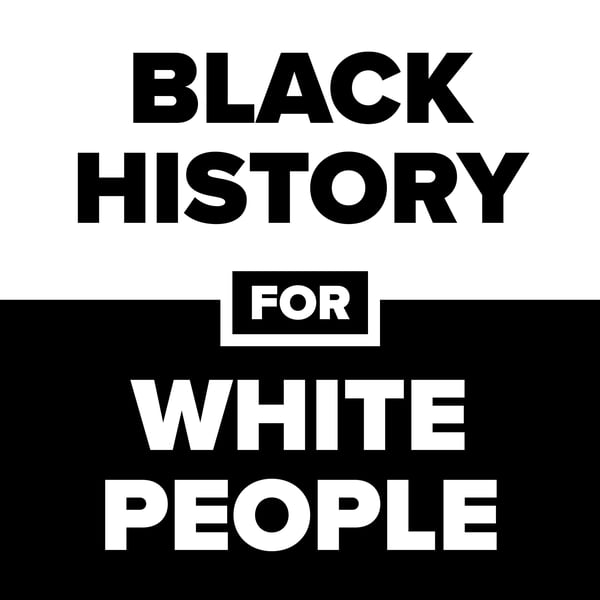Black and Indigenous Solidarity with Lyla June
Black History for White People
Black History for White People
3.6 • 719 Ratings
🗓️ 14 September 2023
⏱️ 92 minutes
🧾️ Download transcript
Summary
Two sisters from different cultural backgrounds discuss the beautiful ways in which Black and Indigenous struggles intersect and have the potential to strengthen one another. Lyla June, of the Diné (Navajo) Indigenous Nation and host of Nihizhi Podcast, speaks with Katina. They also have hard conversations about the tragic histories and contemporary ways these two demographics have not always supported each other. Ultimately the two sisters band together in renewed commitment to stand solidly together in their respective struggles for Black and Indigenous liberation.
www.BlackHistoryforWhitePeople.com
Support this podcast at — https://redcircle.com/black-history-for-white-people/donations
Advertising Inquiries: https://redcircle.com/brands
Privacy & Opt-Out: https://redcircle.com/privacy
Transcript
Click on a timestamp to play from that location
| 0:00.0 | Greetings my |
| 0:03.0 | Greetings my kin and my people. |
| 0:14.0 | This is Lila June, host of Nehijit, Indigenous Solutions, Indigenous Voices podcast. |
| 0:22.7 | Hi, this is Katina Stone Butler with the Black History for White People podcast. |
| 0:27.8 | So happy to be with each other today. We're so excited to do this very special episode |
| 0:33.5 | where we are discussing how to be in deeper solidarity between the black community and the |
| 0:39.1 | indigenous community, how to show up for each other, how we've showed up for each other in |
| 0:44.0 | the past, and really have some of the harder conversations that we don't always talk about |
| 0:48.7 | within our communities with the aim of being more resonant with each other and more healed with each other and more strong as we move forward for our collective liberation. |
| 1:00.6 | Katina, maybe you could just give a brief overview of the impacts of colonization on the black community. |
| 1:06.0 | I know that's a very big subject, but maybe just, you know, go off on what you want to share with listeners |
| 1:12.1 | who are of many different audiences on these podcasts. |
| 1:15.8 | Well, just first of all, thank you, you know, for spending this time with me. |
| 1:21.0 | I think that it is so powerful and necessary for us as Black and indigenous people to give language to our shared experiences and our |
| 1:31.8 | triumph and even, you know, in how we stood in solidarity throughout history on this land, |
| 1:38.1 | land that was stolen, you know, from indigenous people and land that was forced upon black bodies. |
| 1:46.1 | And so as a black woman with indigenous roots, my great-grandmother, who passed away a couple of |
| 1:55.0 | months before I got married in the mid-90s, she was black and indigenous. |
| 2:00.5 | Her mother was a Cherokee woman and just growing up |
| 2:04.0 | sitting at her feet and learning from her experience as a black woman and an indigenous woman. |
| 2:08.8 | And just my parents who instilled in me very early on wanting me to have knowledge and understand |
| 2:14.4 | who I am, who I was and where I came from. There's so much |
... |
Please login to see the full transcript.
Disclaimer: The podcast and artwork embedded on this page are from Black History for White People, and are the property of its owner and not affiliated with or endorsed by Tapesearch.
Generated transcripts are the property of Black History for White People and are distributed freely under the Fair Use doctrine. Transcripts generated by Tapesearch are not guaranteed to be accurate.
Copyright © Tapesearch 2025.

